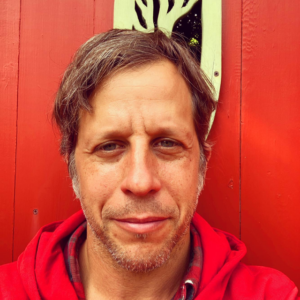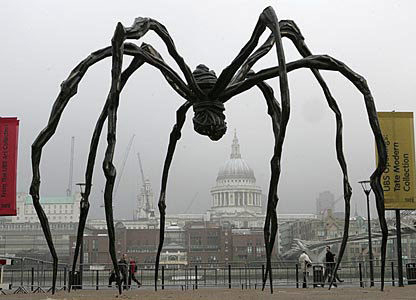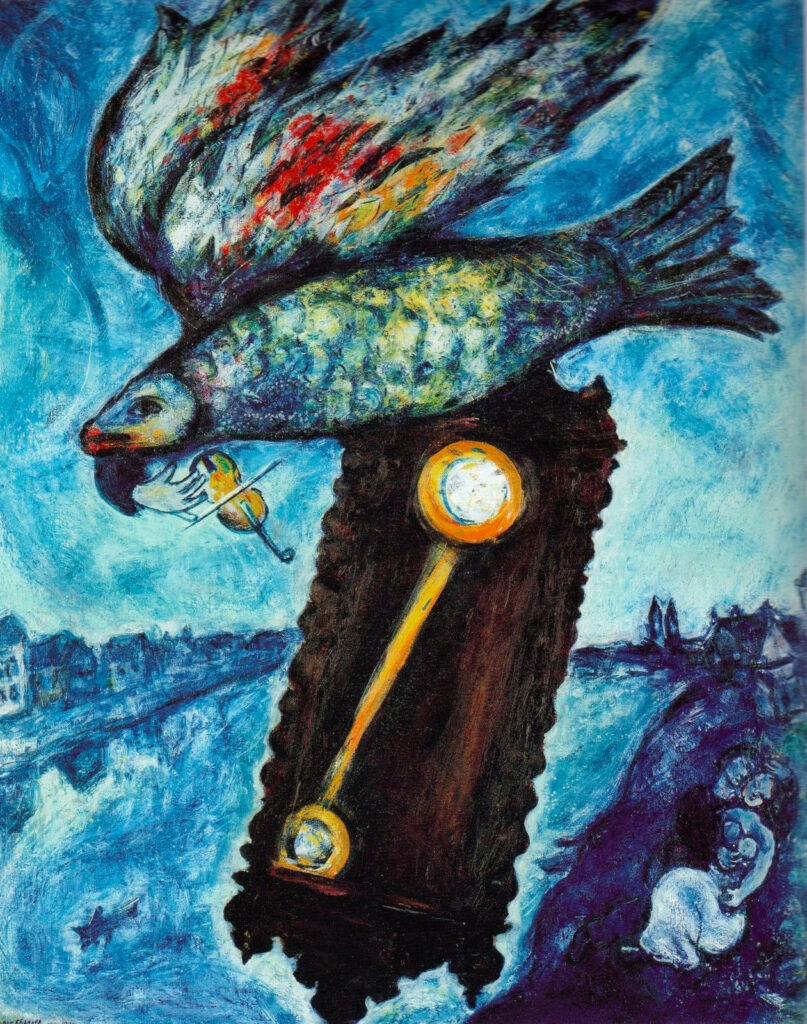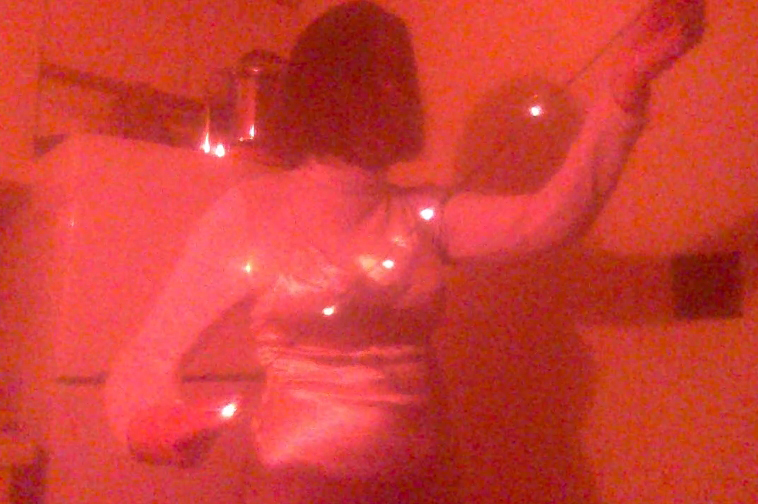A fried egg. Hot chocolate. A burning fire. A spark in the darkness…
These are just some of the varied responses that students in the new January Term theater and dance course, “Dreaming and Creativity,” gave to the prompt, “My desire is like…”

Visiting Lecturer in Theater and Dance Matthew Glassman ’99 presented his students with stream-of-consciousness writing exercises in the beginning of every class, which met virtually via Zoom for five weeks this winter. Glassman is an ensemble member, lead actor, creator, director, and writer at Double Edge Theatre in Ashfield, Massachusetts.
“The overarching idea of the course is to answer the question, ‘What is dreaming?’ Not only the kind that happens when we sleep—although that is an important part—but also the kind that occurs when we’re awake. Imagination, prayer, memory, optimism, faith story… all are a part of the dream faculty,” Glassman said. “This class practices connecting to the unconscious and mining it for raw materials that we can use for reflection, analytical thought, orientation in the reality we live in… for all sorts of things.”

The students began each class by connecting to the space around them, focusing on their breathing and the objects they set in front of themselves. “The first five minutes is usually dedicated to getting into your space and making your space ready for you to be present. The students are connecting with a space they have curated themselves, so there’s music playing, we all light a candle and we do some breathing together,” Glassman said. “We use ancient technologies like candles and breath to sort of transgress Zoom.”
For the stream-of-consciousness writing, Glassman gave the students several prompts, with about two minutes to write per prompt. Alicia Camuy ’22, a neuroscience major in the class, said, “This course was challenging for me in that I’m not used to having such a free flow of creativity. We practice a lot of stream-of-consciousness writing, and it doesn’t have to make sense. I’ve always felt like in other classes, I have to justify the decisions I make, but here, we just creatively outpour ideas.”

Following this writing exercise, the students would break up into pairs to read their works to each other. “I tell the students to jot down phrases they hear that spark something,” Glassman said. “These phrases are used to create a group poem, which we compile and read out once we regroup.” This group poem, along with other individual writings that the students do, are called études. Glassman said, “This is a French word used in music composition when writing music for the early identifying of a theme, sound, or idea.”
Georgia Beckmann ’21 is a theater major who enjoyed this aspect of the course. “In most classes, we have to create an étude as a homework assignment. It’s kind of like a one-minute mini-performance we’re working on based on different prompts,” Beckmann said. “The études have been really interesting—not just creating them, but getting the chance to watch everyone else’s work. Everyone comes from a different field of study and experience level with performance, so it’s really cool to see where everyone’s mind goes with the different assignments.”

The course also involved students breaking up into groups for different activities. “There’s individual research, mindfulness walks, a sharing of material, and then there are usually large- and small-group discussions on lectures, a documentary, or a guest visit,” Glassman said. “I try to let them take walks once a week, without being on their phone or listening to music, just to notice the things around them.”
Glassman also made a conscious effort of ensuring the students connect with one another, even through the remote platform in which they meet. Camuy said, “I think in those different breakout rooms, I’ve connected with people I never would have otherwise because we share such intimate, deep thoughts from our stream-of-consciousness writing. It’s nice to get that unfiltered information that people are vulnerable enough to share with you. I’ve definitely learned a lot more about the people in our class.”
To Glassman, the goal of this course was to help students feel comfortable sharing their thoughts with others and taking more creative risks.
“Ultimately, I want students to feel comfortable taking risks and to learn about how they think and see. I want them to connect to this question of dreaming and creativity in many aspects of their lives,” Glassman said. “I think these are important doors to open, and I think the implications are meaningful, not just to artistry, but to citizenry as well.”
To learn more about the Department of Theater and Dance at Trinity, click here.
"course" - Google News
February 11, 2021 at 04:17AM
https://ift.tt/2Z2spdR
'Dreaming and Creativity' J-Term Course Explores the Implications of Imagination - Trinity College
"course" - Google News
https://ift.tt/35q9ps5
https://ift.tt/35rCFi1
Bagikan Berita Ini














0 Response to "'Dreaming and Creativity' J-Term Course Explores the Implications of Imagination - Trinity College"
Post a Comment